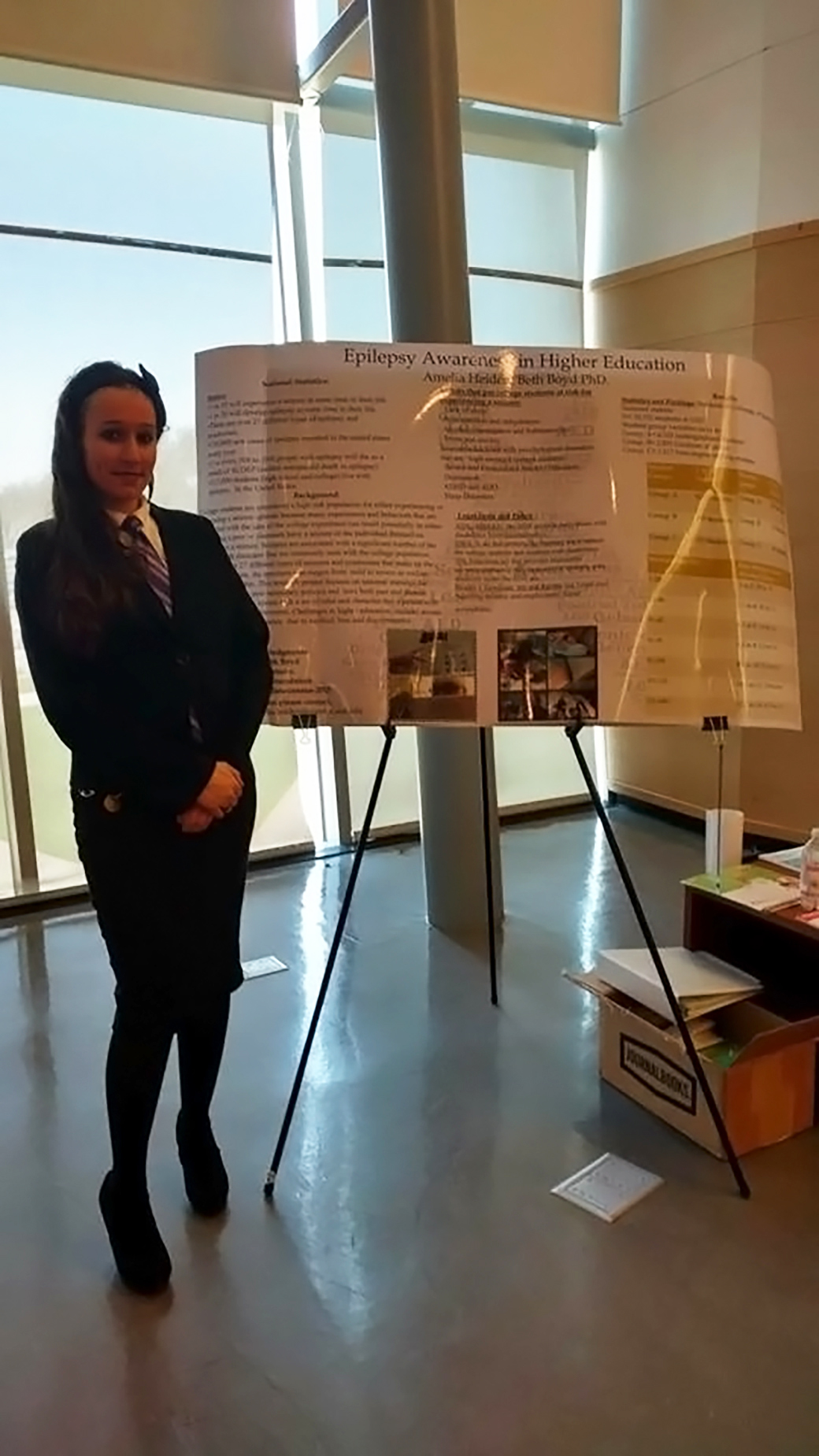
IdeaFest: One student’s pursuit to change how USD handles disabilities
While some students use IdeaFest as a way to prepare for future presentations, others see it as a step towards societal change.
Hosted by USD on April 13 and 14, IdeaFest is an annual event that allows both undergraduate and graduate students to present their research.
Students lined on each side of the MUC to present their work from poster boards, while other students and community members mingled with and learned from presenters.
IdeaFest is open to all disciplines — attendees can learn something about art, walk a few steps and listen to a presentation on cancer research.
Amelia Heiden, a senior majoring in addiction studies and psychology, was asked by the Epilepsy Foundation to do research on epilepsy in higher education. Encouraged by USD faculty members John Korkow, Jesus Trevino and Boyd Boyd, she said she decided to use IdeaFest as a way to practice for the presentation she plans to give to senators and legislators in Washington, D.C., which has yet to be scheduled.
She also said she wanted to use this opportunity to raise awareness about epilepsy and the discrimination and mistreatment that surround it.
Heiden has struggled with epilepsy for all of her life, suffering her first seizure when she was only eight months old. Though some people grow out of having seizures, hers is a lifetime diagnosis.
According to the Epilepsy Foundation, one in 26 people will develop epilepsy at some point in their lifetime. Around two million Americans are living with epilepsy in the United States, and 150,000 new cases are reported every year. When applying these numbers to the student census of 2015, Heiden found that 1,014 out of 10,151 students will experience a seizure in their life and 391 will develop epilepsy at some point in their life.
Heiden was inspired to present after working at CamPossible, a camp for children with Epilepsy.
Her presentation, entitled “Epilepsy Awareness in Higher Education,” focuses on educating students and faculty to help improve the way colleges handle this disability.
She said she believes that because it’s not well understood, campuses across the nation often fail to meet the needs of their epileptic students. Heiden said she understands this failure well, because she feels that she’s been discriminated against by several departments at USD. She believes these misunderstandings stemmed from a lack of knowledge about epilepsy.
“When people do not understand, they judge and generalize,” Heiden said. “They may have known one person with epilepsy who did not need to be hospitalized for long periods of time, or heard that epileptic people do not succeed in college, and they apply that understanding to everyone with the disability.”
Her observational research, which spanned more than a year, was done at CamPossible, where she noted common obstacles children with epilepsy faced. She looked for common triggers for both epileptic and non-epileptic seizures, and discovered many of the triggers such as stress, drinking, abnormal sleeping patterns and poor diet were all common in the college experience.
When looking at how many students can be affected, or even killed, by epilepsy, Heiden said she feels it’s imperative that faculty and students understand this disability. Changes in university policy, such as requiring medical appointments to be covered under absences, could be very beneficial, Heiden said. Educating faculty about the basics of disabilities could eliminate a lot of issues, in addition to ensuring faculty read students’ accommodation sheets, she added.
“Education is key to bringing awareness to blind-spots that institutions and organizations have that contribute to the inequalities and systemic oppression that people with disabilities face,” Heiden said. “Education and awareness on campuses gives a voice to the voiceless.”
Heiden said presenting these findings at IdeaFest made her feel proud and accomplished.
“I had around 100 people come and talk to me,” she said. “I feel that it was a great success. I was able to reach more people within three hours than I have in five years of attending USD.”

